Celebrating Earth Day During National Poetry Month
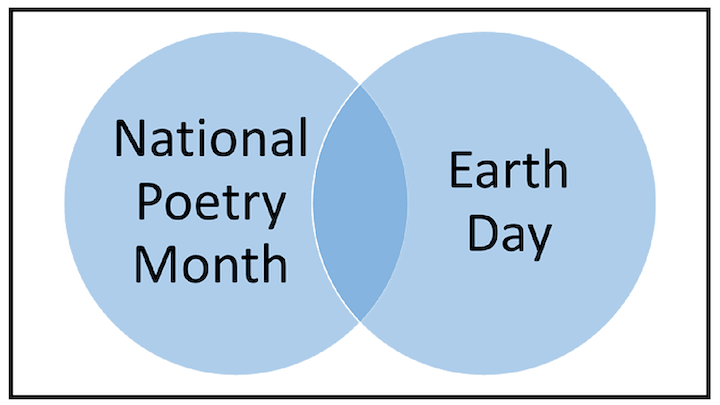
“April showers bring May flowers” is a rhyme many of us recited as children, and while San Diego State usually receives far less rain than England, where this saying originated, it nonetheless serves as a reminder that this month is home to both Earth Day and National Poetry Month! This year we’d like to acknowledge the intersection of those two events, so we have assembled a list of some recent poetry books that focus on nature and the environment. In his influential modernist poem The Waste Land, T.S. Eliot called April “the cruelest month.” Perhaps immersing yourself in a volume of poetry will temper that cruelty somewhat or at least give you a deeper understanding of it. Happy reading!
Books by Individual Poets
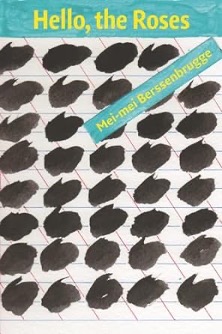
Mei-mei Berssenbrugge is the winner of two American Book Awards and is often associated with the Language School of Poets. This collection is divided into three parts and draws much of its imagery from the natural world where plants and animals co-exist. Major Jackson of the New York Times calls Hello, the Roses "a vital hymn. Few living poets are as able to enter headlong into the spiritual state of our environment and its endangerment. Ethereal and metaphysical, Hello, the Roses presents one of the best minds in modern history."
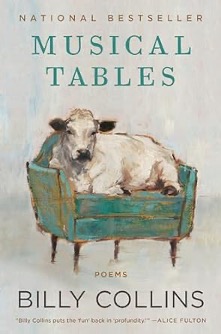
Called “America’s favorite poet” by the Wall Street Journal, Billy Collins served as American Poet Laureate from 2001-2003. This collection of small poems includes his trademark themes of nature and animals. Paul Simon says that “the poetry of Billy Collins has a kindness that glitters with hard truth, and in Musical Tables he gives us a book of short, witty, often luminous snapshots of our sad and funny world.”
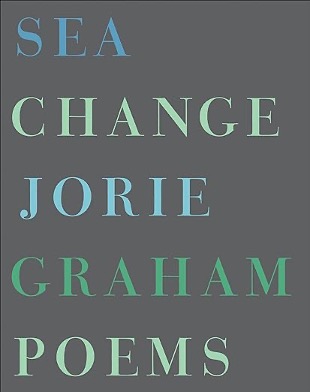
One of America’s premier poets, Jorie Graham won a Pulitzer Prize in 1996 for The Dream of the Unified Field: Selected Poems 1974-1994 and served as chancellor of the Academy of American Poets from 1997 to 2003. The Poetry Foundation calls her "one of the most celebrated poets of the American post-war generation." Publisher’s Weekly says that Sea Change, with its emphasis on the challenges faced by the environment, “contains what might be her most urgent and impassioned writing to date.”
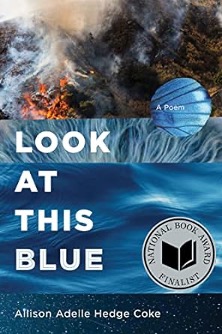
Allison Adelle Hedge Coke won an American Book Award in 1998 for her debut collection, Dog Road Woman, and she has published several collections since then. Look at this Blue is a book-length poem focused on the degradation of the natural environment in California. Eleni Sikelianos calls this poem “a necessary reckoning with the ongoing, disastrous, criminal genocide perpetuated in the Golden State, amongst the beauty and riches of its landscape.”
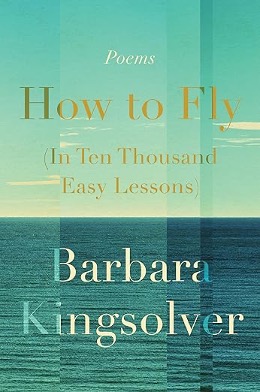
Known primarily for her fiction and essays, this is the second book of poetry by Barbara Kingsolver, winner of the 2023 Pulitzer Prize in Fiction for her novel Demon Copperhead. The book includes poems that celebrate the wonders of the natural world with titles like “Love Poem, with Birds” and “The Hands of Trees.” The Tampa Bay Times writes that these poems “turn our attention to the immediate and the everlasting, human intimacy and the power and mystery of nature."
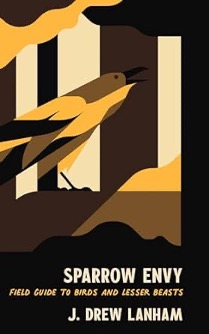
Joseph Drew Lanham is an American author, poet, and wildlife biologist who was awarded a MacArthur Genius Award in 2022 for his work "combining conservation science with personal, historical, and cultural narratives of nature." His poetry is informed by his biological research, which focuses on the ecology of songbirds. World of Wonder author Aimee Nezhukumatathil writes, “at the heart of this collection is a deeply satisfying focus on birds and yet, in these pages, it is humankind that gets examined with candor and cunning.”
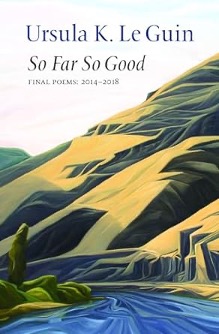
Known primarily as the author of such classic Science Fiction & Fantasy novels as The Left Hand of Darkness and The Dispossessed, Ursula K. Le Guin began her literary career as a poet and continued writing poems throughout her storied career. Her publisher, Copper Canyon Press, describes these poems as “redolent of the lush natural beauty of the Pacific Northwest, with rich sounds playfully echoing myth and nursery rhyme.” The manuscript was completed shortly before her 2018 death and was published posthumously.
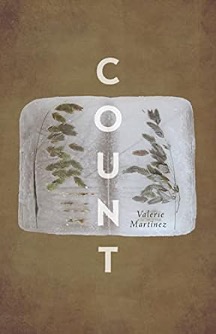
Valerie Martinez has worn a variety of hats in her career, from collaborative artist to educator, and she is also the author of six books of poetry, two chapbooks, and one book of translations. She served as poet laureate of Santa Fe, New Mexico from 2008-2010. Count is a book-length poem presented in 43 parts that count the wonders of the natural world while counting down to the extinction of species. Commonweal Magazine calls Count “deeply moral, but never moralizing.”
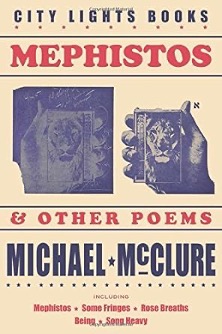
Often associated with the Beats and the poets of the San Francisco Renaissance, Michael McClure enjoyed a career that spanned over sixty years before passing away in 2020. Mephistos & Other Poems was one of his final books. It contains short meditative pieces informed by encounters with the natural world and climaxes with “Song Heavy,” a poem about his encounter with a beached whale. Jeffrey Cyphers Wright of American Book Review writes, “Michael McClure rides a spirit wind through meat flower breath. For six decades, he has honed a sentient sensibility that conveys ease, peace and wisdom.”
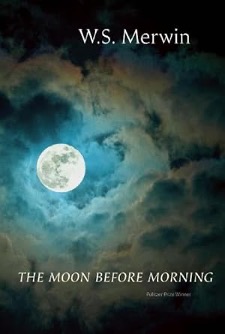
Two-time winner of the Pulitzer Prize for Poetry, winner of the National Book Award for Poetry; 2010-2011 U.S. Poet Laureate; these are just a few of the honors bestowed upon W.S. Merwin in a distinguished career that saw him author more than fifty books of poetry and prose. Merwin passed away in 2019, and The Moon Before Morning was one of his final books. An obituary on the Poetry Foundation’s website notes Merwin’s attention to the natural world, especially in his later poems: “Merwin’s later poetry doesn’t merely describe the natural world; it also records and condemns the destruction of nature, from the felling of sacred forests to the extinction of whole species.” Fiona Samson writes in a Guardian review, “The Moon Before Morning is a book of drive, finesse and astonishing beauty.”
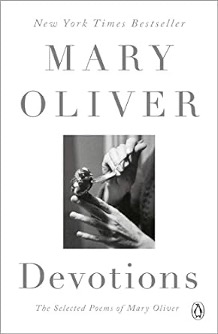
Another giant of American Poetry, Mary Oliver won both the National Book Award and the Pulitzer Prize in Poetry while becoming one of the country’s best-selling poets. Devotions: the Selected Poems of Mary Oliver was the final book she assembled before her death in 2019 after a career spanning more than five decades. Her selections reveal the deep inspiration she found from nature that was formed by her lifelong habit of taking long walks in natural environments. The Washington Post writes “In Devotions: The Selected Poems of Mary Oliver (Penguin), one of our most beloved writers offers both the best of her work and a spiritual road map of sorts.”
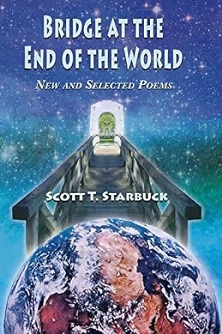
Poet and activist Scott T. Starbuck’s work is focused on the threat to the natural world posed by Climate Change. Bridge at the End of the World: New and Selected Poems presents some new work alongside some of the best selections from Starbuck’s four previous climate-themed collections. Leading climate activist Bill McKibben calls the Starbuck’s work “rousing, needling, haunting.” Starbuck teaches creative writing at Mesa College and has also taught ecopoetry workshops at Scripps Institution of Oceanography in the UC San Diego Masters of Advanced Studies Program in Climate Science and Policy (MAS CSP).
Multi-author Collections
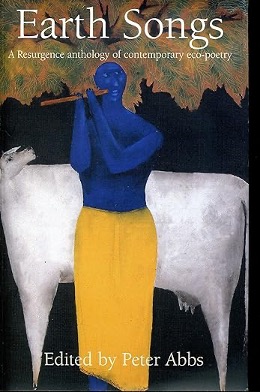
Billing itself as “the first major anthology of contemporary eco-poetry,” this book collects poems by a wide range of poets, including such well-known environmental writers as Wendell Berry and Gary Snyder. The book is divided into eight major themes, selected in response to the threat our environment faces.
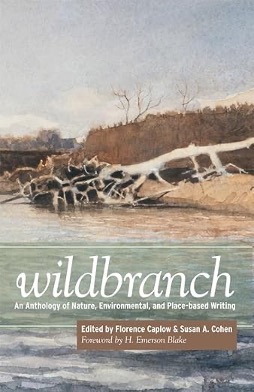
A combination of both poetry and prose pieces, Wildbranch: An Anthology of Nature, Environmental, and Place-based Writing was assembled at the Wildbranch Writing Workshop (founded by E. Annie Proulx), held at Sterling College in Northern Vermont. Featuring a mixture of established as well as lesser-known nature writers, this anthology is divided into five thematic sections. Distinguished Professor Emeritus Scott Slovic (University of Idaho, formerly at University of Nevada) writes that this is “one of the richest collections of environmental writing to emerge in years. A special virtue of this new collection is the range of voices offered, and student writers in particular will find the diversity of voices inspiring and empowering.”
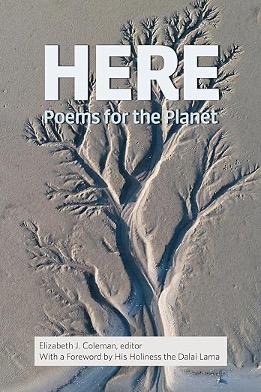
This anthology contains 128 poems by a diverse group of contemporary writers from many different countries. Included are some well-known poets (e.g., Wendell Berry, Sharon Olds) as well as some lesser-known ones. The forward is provided by His Holiness the Dalai Lama who writes, “This book contains many beautiful, generous poems and ideas for action. It is my heartfelt hope that they will inspire readers who ask themselves, ‘but what can I do?’ to see that there is a way forward – learning to share the earth and its resources, while taking care of it together.”
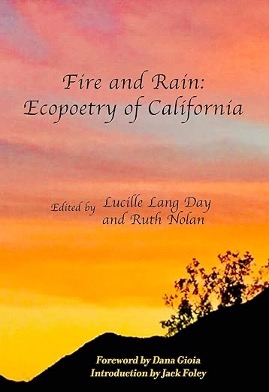
This anthology contains more than 250 poems by 149 contributors including Ellen Bass, Dana Gioia, and Jane Hirshfield. In a discussion of the Californian literary imagination, Gioia writes in the forward that “our culture is rooted in the natural landscape and driven by the idea that its new society could escape and transform history.” Pattiann Rogers, recipient of the John Burroughs Medal for Lifetime Achievement in Nature Poetry writes that Fire and Rain: Ecopoetry of California “is not only a beautiful and thorough anthology but an homage to California, its varieties of landscapes, and the amazing poetry it has evoked.”
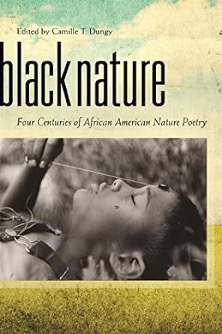
Featuring such major writers as Rita Dove, Yusef Komunyakaa, Gwendolyn Brooks, and Ishmael Reed, this collection is the first major anthology focused on nature-writing by African-American poets. In her introduction, Dungy writes, “the poems and essays collected here serve as an introduction to a new way of thinking about nature writing and writing by black Americans.” Booklist’s review of this collection states, “Just as nature is too often defined as wilderness when, in fact, nature is everywhere we are, our nature poetry is too often defined by Anglo-American perspectives, even though poets of all backgrounds write about the living world. . . . Dungy enlarges our understanding of the nexus between nature and culture, and introduces a 'new way of thinking about nature writing and writing by black Americans.'”
BONUS – Children’s Book!
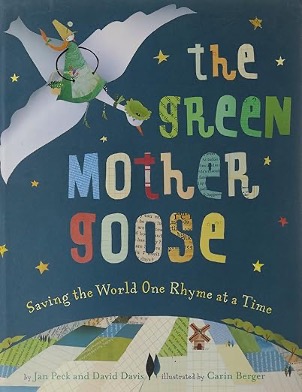
A thought-provoking twist on the classic Mother Goose rhymes, rewritten with environmental themes. The versions found in this book include such verses as “Mary had a little lamb/its fleece was snowy white/But they lived near a coal-fired plant/now its fleece is black as night.” This book will appeal to adults as well as children!
For information on sustainability at SDSU, please see https://sustainable.sdsu.edu/
Thank you!
Prepared by Markel Tumlin

